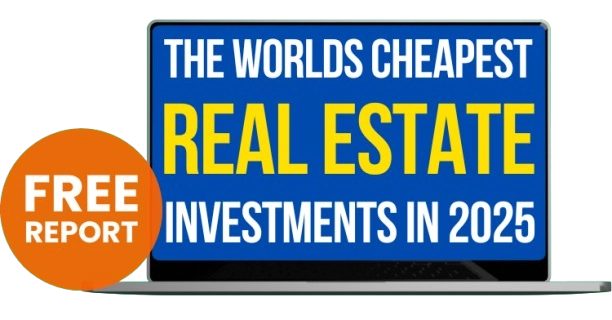Renting Real Estate Overseas
I have a friend who moved to Paris a year or two before Kathleen and I bought our apartment there in 2004. He was renting at the time and is still renting to this day… 20 years later.
He decided to rent first because he didn’t know how long he and his wife might want or be able to live in Paris. Fair enough. However, over the years, he had one reason after another not to buy an apartment, but the main reason was always that they had a good deal on the rent.
Indeed, the rent they were paying was a bargain, and the landlord didn’t increase it much over the years. Eventually, the landlord died, and his kids inherited the apartment. For a long time, they continued to rent to my friend, but they raised the payments to get it up to the current market rents.
A few years ago, with no notice, the landlord told my friends to move out so they could move in. My friends scrambled to find a new apartment to rent and were able to find something in the same neighborhood that worked for them. In fact, it was a nicer apartment with a better floor plan… and a much higher rent.
Over the years, my friend made improvements to the first apartment to suit their needs (with the approval of the landlord). He was happy to spend the money knowing he had a bargain for his rent. Of course, those costs were sunk and no longer benefit him now that he’s had to move.
After moving out of this low-cost apartment rental, his excuse for not buying was that property prices in Paris had gone up. Prices were higher than when they first moved to Paris, and he had it in his head that he shouldn’t buy today because property was cheaper yesterday… so he kept renting.
Let’s compare that story to ours.
Buying Real Estate Overseas
When we decided to move to Paris so our daughter could finish high school there, we could have rented—we thought we’d just be there for a few years—but we decided to buy. We bought the best, largest apartment that accommodated both our family and our budget, which included a complete renovation.
The capital outlay wasn’t insignificant, and the mortgage payment was more than rent would have been for something similar (that’s not unusual in Paris, especially when you factor in that the banks typically give only a 20-, maybe a 25-year mortgage compared to the 30-year mortgages in the United States).
When we moved to Panama in 2008, we kept the apartment knowing we wanted to return to Paris someday. So, we rented it out. The rent barely covered the mortgage payment, but the apartment kind of paid for itself… and we were able to use it ourselves for vacation in between tenants.
Most mortgages in Europe at the time were variable rate mortgages. During the first few years after we bought, interest rates went up. The monthly payments for the mortgage didn’t change at first because the mortgage terms stated that payments only went up if the increased interest would add more than a certain number of months (I believe it was 24 months) to the entire 20-year term.
At some point that threshold was crossed, and the mortgage payment was increased… then interest rates started falling. The interesting thing about the mortgage terms is that when interest rates fell enough to shorten the term of the mortgage, the payments didn’t decrease.
With euro interest remaining low for the last 15 years, our 20-year mortgage will be paid off at the end of this year… about 2 years early.
We’ll no longer have a monthly payment—and our friends will still be paying rent.
The Pros And Cons Of Renting Real Estate Overseas
Of course, renting has its advantages. When we moved to Panama, we already owned a rental property in the city. But we decided to rent another apartment because we needed a bigger one. We continued to rent as we moved around the city trying out different neighborhoods. Then, when we found a building and location that we really liked, we still didn’t buy knowing that we’d be empty nesters soon, and that small rental apartment in Panama City would suit us with no kids at home.
Renting gives you flexibility.
It can also trap you like it did my friend. His thinking in the beginning was that he had a good deal. Then, knowing the price of apartments when he first started renting kept him from buying when he knew he was going to stay in Paris for the long term.
Should You Rent Or Buy?
The lesson here is to not let yourself get trapped. My friend had and has the money to buy in Paris. He could have qualified for a mortgage like we did. Each step of the way, the hurdle to buy was mostly indecision and looking backwards rather than committing and moving forward.
I’ve seen similar responses to price increases in a market by pure investors as well. I tell a story about a guy who was researching Costa Rica for years. I won’t retell it here in full, but suffice it to say, he didn’t end up buying anything in Costa Rica because he knew what the prices were when he started his research. He felt he missed the boat… not unlike my friend.
When investing in real estate, I try to look at the current market and where it’s going. What are the projected yields based on today’s prices? What is the potential for appreciation going forward?
Sometimes knowing recent appreciation can help predict short-term future appreciation. If property prices have gone up fast in the last 12 months, will they regress for a period? Will they stay flat?
Real estate is a long-term investment, so look beyond a year or two into the future.
And don’t let past appreciation keep you from making a solid buy decision today.
Lief Simon
Editor, Global Property Advisor










